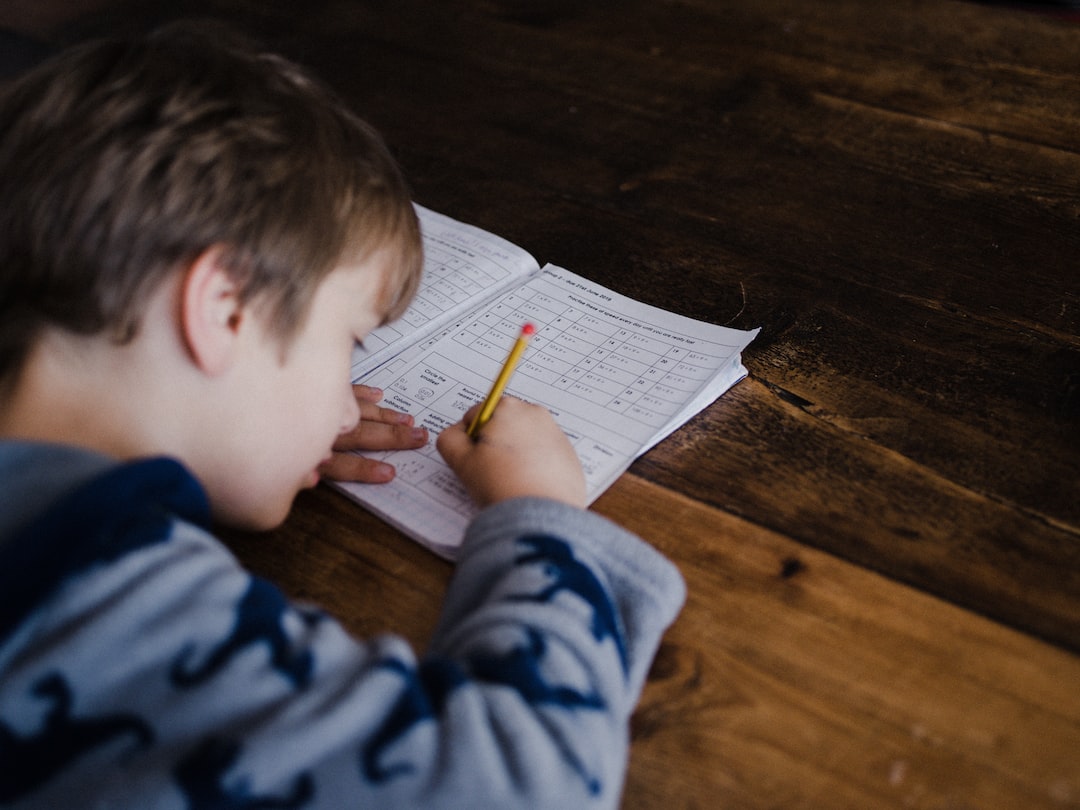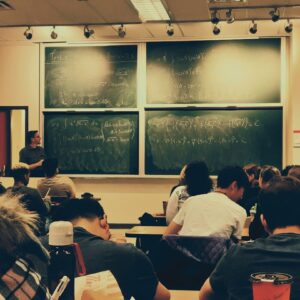How to Prevent Summer Slide in Math: A Parent’s Guide
 " />
" />
Table of Contents
Imagine spending hundreds of hours reading, finishing assignments and learning math formulas in class for most of that knowledge to dwindle over the summer months. It sounds awful, and the worst part is it actually does happen. This phenomenon may affect your child during their time away from school, but there are ways to combat it. Here's everything you need to know about how to prevent the "summer slide."
What Is the Summer Slide?
The summer slide might sound like a thrilling 800-foot-long waterpark attraction, but in reality, it's far worse. The real summer slide doesn't have a height requirement — it's the plunge your child's academic skills take during their months away from school. The good news is there are ways to fight back against the summer slide and keep your child's brain sharp without ruining their coveted vacation.
Why Does the Summer Slide Happen?
The reason for the summer slide is quite simple: Students aren't in school. Let's say you take up tennis as a hobby, sink a lot of money into private lessons, and spend a lot of time practicing or playing games with friends. If you were to suddenly take a few months off without doing anything remotely close to tennis, you'd notice quite a big difference when you start up again. You'd be huffing and puffing around the court, your shots wouldn't land where they had before, and you might even forget some of the rules and strategies you used to use. Of course, you can get back to your previous skill level eventually. But if you continued to practice instead of taking time off, you wouldn't have to make up everything you lost and would be at a much higher playing level.
This is exactly like the summer slide. Yet, because children are developing, it can have far-reaching effects. Elementary school students are at a key stage in their development, especially in math and reading. Children between the ages of 7 and 11 are beginning to use logic, which in math terms means beginning mental math and problem-solving. A summer slide will hamper their progress.
Summer Slide Statistics
Summer slide isn't just a saying. It's backed up by research. The Northwest Evaluation Association (NWEA) found troubling summer patterns where students' test scores flatten or drop off after their summer break, with math and reading taking the biggest hits.
Other studies back it up as well. Allison Atteberry of the University of Colorado-Boulder and Andrew McEachin of RAND Corporation published their discoveries. Their findings state that during the summer, students between 1st and 8th grade lose somewhere between 25% to 34% of what they've learned over the previous nine months on average. This means taking the summer slide seriously will not only preserve your child's knowledge, but it can help get them ahead!
The Importance of Preventing the Summer Slide
Students, especially young children, are at a key stage of development. You want them to enjoy summer and get a break from the day-to-day grind of school, but preventing their summer slide should still be a high priority. Your child shouldn't sacrifice all the time and effort they put into succeeding only to start behind next year.
Putting practices in place to continuously learn from a young age won't just prevent summer slide either. It'll develop your child into someone who loves learning. This translates into an eternal curiosity for long-term academic success. Getting your 3rd grader to practice math while school is out might sound like a difficult feat, but there are plenty of ways to make it fun.
Strategies To Stop the Summer Slide in Math
If you're concerned about learning loss, don't worry. You can stop a summer slide through several strategies that fit your child's personality and learning style. There are plenty of choices, from relating math to real-life situations to finding puzzles that keep their brains working. You can also find the best online summer math program to have professionals find the ideal path for your child.
Explore Summer Math Programs or Camps
Sometimes, joining a group is the best way to learn. If this sounds like what your child likes, consider checking out summer math programs and camps. You'll find different options, such as hands-on activities or online summer school classes. Enrolling in a program or camp will boost your child's confidence in math, and they might even make a new friend or two. Choosing a summer math program that suits your child will depend on your summer plans, their level, and what they need to focus on.
Incorporate Math Games and Puzzles
Children can learn math without knowing they're actually learning. A great technique is to get them started with math games or puzzles involving critical thinking skills. These games can be physical games they can touch, like Monopoly, or mobile apps and puzzles on their smart devices, like Sudoku.
If you have a deck of cards or a couple of dice, there are a range of math games you can play. Younger kids can play Go Fish to improve their number recognition and addition skills. Rolling dice and using numbers to make math problems is a sneaky way to get them to do calculations without knowing they're studying.
Include Math in Daily Routines
There are many ways to get better at math over the summer that don't involve having your child sit at a desk and practice for hours. Of course, some students like to study. If this is the case, divide the studying so it's done in small chunks each day rather than one intensive day per week. This approach tackles the same problem students face with the summer slide. Studying intensely for one day and then taking a five or six-day break means your child will be more likely to forget what they learned. Studying a little bit each day keeps the material fresh.
Make time for a little bit of math each day, whether drilling equations at the kitchen table or playing a math game on a phone. Sticking to a similar time for math each day makes it a routine, and your child will get used to it quickly.
Leverage Real-World Applications of Math
Learning math from a book can get stale, and there are plenty of ways to use math in real life to prevent the summer slide. Giving your child a summer allowance or paying them for chores will teach them financial responsibility and familiarize them with basic money math and budgeting that they'll use throughout their lives.
When traveling or running errands, talk about time and distance. Using paper or online maps can help your child better understand distance and measurement. Looking at clocks and determining how long a certain task will take will help them make new calculations, as well.
Baking and cooking are other fun ways to incorporate math into the real world. Kids love this because they get to create something and then eat it when it's finished. Showing measurements like one cup vs. ½ cup can help them understand fractions. Making a batch of cookies that is twice as big as the recipe can help them understand how to multiply all ingredients.
Use Math Apps To Enhance Learning
Most children think computers, tablets, and smartphones are fun to use. Giving your child screen time can seem like a reward, even if it's to use a math app. There are plenty of math apps specifically designed to keep kids engaged and improve their math skills. Some games are adventure or sports games, where the characters make moves and advance through the game when the player answers math questions correctly. Others are more traditional, where players will get a higher score for getting questions correct. Math apps allow students to have fun while striving to improve by getting further in the game or a higher score.
How To Prevent the Summer Slide for Other Skills
Summer learning loss isn't limited to math. Other skills and subjects are also vulnerable to decrease after months of not using them. The best thing to do is to create an environment where your child is in a state of discovery throughout the summer break to pique their curiosity and make learning fun. Here are three ways to prevent the summer slide of other skills.
Encourage Reading
Reading skills tie into all other subjects. Studies even show frequent readers are more empathetic towards others. The best way to encourage good reading habits is to give your child free rein over what kind of books they read. Let them develop a positive relationship with reading by taking them to the library or bookstore and letting them get something that interests them. Placing them in a fun environment helps, too. Show your child how much fun it is to crack open a good book by a pool or in a park.
Another way to get your child to read more in the summer is to join summer reading programs or create a reading challenge. At the beginning of summer vacation, make a list of books that they want to read. Reward them if they finish all of the books before school starts. Getting their friends in on the challenge is a good way to build a book club. Rewards can range from a movie night with the whole book club, a sleepover, a trip to a fun restaurant, or a prize of their choice.
Engage in Creative Activities
Creating something new is a chance to learn through experimentation and develop their imagination. Creative summer learning activities can range from keeping dream journals to finger painting to making tie-dyed t-shirts. Involving friends can act as a fun group project, where they all improve their social skills too. Playing games like Charades, using puppets or toys to tell a story, or having a scavenger hunt are all tools to get your kid thinking out of the box and avoiding summer slide.
DIY projects are another perfect way to get active, creative, and logical. Have your child assemble beaded necklaces or bracelets with different types of knots. Try making pottery or paper mache bowls. Older kids can take on more ambitious projects like building a birdhouse or a miniature windmill. For more controlled building projects, toys like LEGOs work great.
Get Out and Explore
Just getting outside and away from screens presents a prime learning opportunity. Take your kid for a hike or trek through the woods and talk about the different plants and animals they see. Afterward, they can draw pictures or write in a journal about their observations.
Another option is bringing students on a type of field trip adventure. Museums, zoos, art galleries, and farms can all provide stimulating experiences. Your child will be fascinated with all of the fun facts and displays at these excursions, and maybe you will be, too.
Stop the Summer Slide With Alexander Tutoring
Now that you're familiar with the summer slide, you might be concerned about the upcoming vacation. Just remember: You have plenty of options. Working math and other skills into your child's day-to-day life over the course of the summer will help them retain what they've learned over the previous year. Then turn to the professionals at Alexander Tutoring to help stop the slide.
At Alexander Tutoring, we have a variety of customizable strategies and techniques that fit different learners. We make sure our students absorb complex mathematical concepts in ways that they can not only remember but also build on.
Don't let your child's knowledge slide in the summer. We can help. Contact Alexander Tutoring today and learn more about our summer math intensive.




